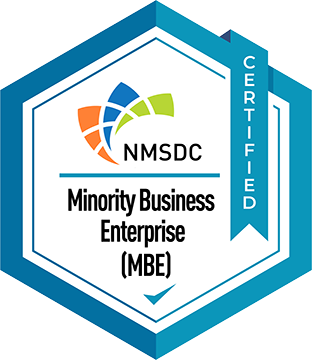Connecting Cultures: America and Japan
Global Arena’s intercultural language academy specializes in designing, customizing, and delivering a vast array of intercultural training services. We aim to tackle and overcome our clients’ unique cultural challenges. We tailor our trainings to each client’s requirements, specifications, and goals. An we love working with our clients to create programs that meet their diverse needs.

Connecting Cultures: A Four-Part Series
Global Arena is not only an international language academy but an intercultural trainer as well. Our intercultural training services take a personalized approach to company and diversity culture. Our specialties include communication management, diversity trainings, and language training services to improve competency and fluency. In our Connecting Cultures series, we’ll share examples of some of our Intercultural Training programs. Our training programs are an integral part of creating a diverse, culturally sensitive environment from the very start.
Intercultural Challenges
In our first success story, we’ll address the cultural challenges that American employees faced after relocating to a Japanese company. Global Arena’s intercultural language academy created a program that completely changed the company culture for the better. This particular client contacted Global Arena with a serious communication problem. They found that American employees were unable to properly communicate with their Japanese counterparts and coworkers. The American employees were therefore unable to re-integrate into the company culture after their relocation. This wasn’t just a matter of a language barrier—though that was certainly a factor in the communication concerns. The American and Japanese employees fundamentally lacked understanding based on cultural differences. This caused separation in the office, difficulty working through assignments and complications as a team, and an uncomfortable work environment.
Global Arena instigated a thorough information gathering process. We categorized the challenges that the American employees were facing through personal interviews and general cultural research. After compiling this data, Global Arena’s intercultural trainer designed and delivered a program. Its goal: to help address the issues related to cultural disparities and the disconnects amongst the employees and executives.
Delivering Success
The HR department tasked Global Arena’s intercultural language academy with a mission. Our goal was to familiarize the company’s American personnel with Japanese business and also social culture.
We helped the American employees achieve better understanding and practices for working with their Japanese colleagues. Only through a heightened level of cultural competence could the company hope to facilitate better internal communications and relations. In an expected collateral effect, we also helped Japanese executives to be more communicative in the workplace.
The American employees required an environment of open communication to work effectively, raise questions and concerns, and find success. The parties met halfway, committing to the learning process and to the company culture. This program is now part of the client’s training schedule. They conduct the program twice per year. The regular availability ensures that all American personnel have access to the program and are able to repeat attendance when necessary.
The Process
Global Arena conducts the Intercultural Training program as a one-day presentation. Our consultants have ample professional experience and expertise in multicultural environments. In this case, we worked with a consultant who also has a deep knowledge of Japanese culture. Using a background questionnaire prior to training, Global Arena assessed the employees’ knowledge and delivered the results to the trainer. Our consultant developed a curriculum using his expertise and customized it to take the background questionnaire results into account.
The Results
The company found the intercultural training program a rewarding and necessary experience. The training created the right environment to foster communication amongst employees of diverse cultural backgrounds. The Japanese executives started viewing the American counterparts as trusted colleagues and not only employees. The program helped the American employees increase their understanding of Japanese culture. They also better understood the behavior of the Japanese executives. The American employees were also able to foster an interest in learning about Japanese culture.
As their interest levels rose, the American employees started submitting requests to attend a Japanese language class. Global Arena added additional Japanese language classes and levels to meet the demand. Originally, Global Arena scheduled the Japanese group classes as a one-time event, lasting 10 sessions. After a successful trial period, we extended the classes to last throughout the year; creating an internal intercultural language academy.
Global Arena’s Role in Your Success
Global Arena’s Intercultural Language Academy played a key role in turning also this company into a multicultural community. As more companies expand into global markets, they must address furthermore cultural differences right from the beginning. This diligence ensures a more interconnected, productive, and also positive work environment.
Global Arena’s years of experience and professional consultants make us the right partner to help your company overcome cultural challenges.
We are here to make a positive impact on your company’s cultural diversity.







